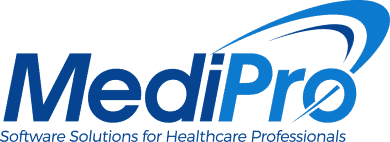Medical practices used software to help manage their offices for decades. Nevertheless, nowadays medical practice management software (MPM software) assume only the most basic resemblance to its elder counterparts Medical software these days allow staffers to track patient demographics, visits, and diagnoses; collect, transmit, and track billing information and insurance payments. By accepting such a wide range of responsibilities, medical practice management software can enhance the efficiency of an entire practice. Anyone from physicians and nurses to clerks and billing specialists will be affected by the choice of software. The highly maligned Health Insurance Portability and Accountability Act (HIPAA), which set standards for electronic patient data among other things, is a prominent driving force behind many MPM decisions. Many people shopping for medical practice management software are upgrading from older software that are not capable of complying with HIPAA regulations.
There are hundreds of MPM software packages available today, targeted at every type and size of practice. Therefore, it is imperative to ask the right questions in order to evaluate both the software and the vendor so you can choose the best solution for your practice, even as the health care industry has traditionally been unhurried to implement new software that is changing. In addition, to HIPAA compliance, there are numerous important benefits to be achieved from the correct medical software such as, improved staff productivity because easy-to-use software improves efficiency. Also, increased patient and customer satisfaction provides more flexibility in scheduling and better access to personal information. Then there is quicker payment from insurers; paper claims usually take 30 – 60 days, electronic claims are usually paid in 10 – 14 days instead and also fewer errors in billing and insurance; correct and resubmit in hours, instead of weeks.
Most practice management software will also bring you into agreement with the sections of HIPAA that specify raised security standards, ANSI billing formats, and more. It is highly recommended that you quiz vendors carefully about the HIPAA compliance of any software you are evaluating, especially around electronic billing and security measures. Since medical practice management software will affect everyone in the office, it is imperative that you include several people in the evaluation and purchasing decision. Physicians, office managers, receptionists, and billing managers will all have different point of views and vital concerns, taking any major steps towards a purchasing decision without involving every role is likely to cause predicaments later on.
If you have started your search, it is possible you have noticed that there are a tremendous number of software providers to select from. One way you can swiftly narrow the field is to see what practices like yours are choosing. Locate offices alike to yours in size and specialty and visit their offices to see the software in action. While this may seem like an apparent tactic, it is highly effective. One reason there are so various types of medical practice management software is that many are targeted towards specific types of practices such as, small family practices, which have considerably different needs than large hospital staffs, as do orthopedic practices and dentists. Other medical businesses including medical equipment companies and medical billing services have even more specific needs.
